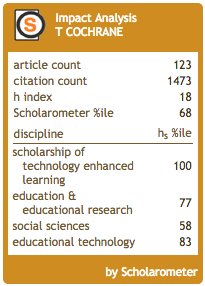An Agile and Scalable Professional Development Strategy: The CMALT cMOOC Project [1618]
https://altc.alt.ac.uk/2017/sessions/an-agile-and-scalable-professional-development-strategy-the-cmalt-cmooc-project-1618/
Introduction
Globally there is a shortage of higher education practitioners and researchers evidencing a critical engagement with the intersection between teaching, learning, and technology. We believe an open and agile approach to professional development (PD) will allow higher education practitioners and researchers to embrace the rapidly changing and complex environment of technology and affordances to explore their impact on teaching and learning. Educators need to critically theorise the intersection between learning theory, technology and frameworks leading to new pedagogical practices and understanding of technology enhanced learning. This is epitomised in the adoption of the scholarship of technology enhanced learning or SOTEL (Haynes, 2016), that brings Boyer’s (1990) concept of the scholarship of teaching and learning (SOTL) into the twenty-first century.
Session Outline
Traditional PD strategies revolve around either the provision of a series of workshops or completion of a post-graduate qualification in learning and teaching. In contrast to these traditional PD approaches, we have leveraged a connectivist MOOC strategy to support a global network of PD Communities of practice (COP). In this session we will outline the model we have used to develop and implement a prototype PD cMOOC: http://mosomelt.wordpress.com/about/ (Cochrane and Narayan, 2016, Cochrane et al., 2015). Peer participation and sharing of praxis are triggered through the cMOOC that aims to scaffold participants to generate critical reflective practice evidence for CMALT portfolio accreditation, outlined at http://tinyurl.com/CMALTcMOOC. Interactive participant feedback techniques will include a Twitter back channel and an online participant survey. Participants will be invited to join us in the development of our first iteration of the CMALT cMOOC project.
Project Updates at:
References
Boyer, E. 1990. Scholarship reconsidered: priorities of the professoriate, Princeton, NJ, Carnegie Foundation for the Advancement of Teaching.
Cochrane, T. & Narayan, V. 2016. Evaluating a Professional Development cMOOC: MOSOMELT. In: Barker, S., Dawson, S., Pardo, A. & Colvin, C. (eds.) Show Me The Learning. Proceedings ASCILITE 2016 Adelaide. University of South Australia, Adelaide, Australia: Ascilite.
Cochrane, T., Narayan, V. & Burcio-Martin, V. 2015. Designing a cMOOC for Lecturer Professional Development in the 21st Century. In: Keengwe, J. & Onchwari, G. (eds.) Handbook of Research on Active Learning and the Flipped Classroom Model in the Digital Age. Hershey, PA, USA: IGI Global.
Haynes, D. 2016. Introducing SOTEL. International Journal for the Scholarship of Technology Enhanced Learning, 1, 1-2.










You must be logged in to post a comment.